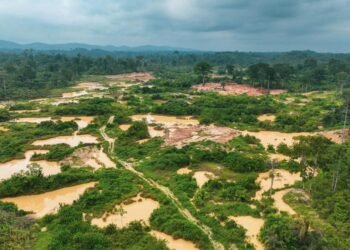Energy and trade experts in Nigeria have raised serious concerns over the Federal Government’s proposed ban on the importation of solar panels, warning that such a move could jeopardize the country’s clean energy agenda, delay energy access for underserved communities, and worsen the national energy crisis.
Dr. Yusuf Adedayo, a renewable energy specialist at the University of Lagos, expressed caution about the timing of the ban.
“We must first assess if Nigerian manufacturers have the capacity to produce high-quality solar panels at scale.
“If we impose a ban without a strong local supply chain, we risk stalling renewable energy access in rural and underserved areas.”
Dr. Yusuf Adedayo, Renewable Energy Specialist at the University of Lagos
Adedayo highlighted that most local producers still rely on imported components for assembly, and disruptions in the global supply chain could negatively impact production timelines.
Similarly, Dr. Muda Yusuf, CEO of the Centre for the Promotion of Private Enterprises (CPPE), warned that Nigeria’s energy crisis could worsen if the government proceeds with the ban.
“It is important to clarify that Executive Order 5 is a procurement policy which directs Ministries, Departments, and Agencies (MDAs) to give preference to Nigerian service providers in their procurement process for goods and services.
“It is clearly different from a trade policy measure which has wider economic implications and requires a more rigorous study before policy pronouncements are made.”
Dr. Muda Yusuf, CEO of the Centre for the Promotion of Private Enterprises (CPPE)

Engr. Hadiza Musa, energy consultant and CEO of GreenSource Power, emphasized the need for a gradual approach to the transition.
“A sudden ban could spike the cost of solar installations drastically.
“For a country where over 85 million people are still without electricity, we can’t afford to make solar energy more expensive or less accessible.”
Engr. Hadiza Musa, energy consultant and CEO of GreenSource Power
Musa urged the Federal Government to focus on building a comprehensive ecosystem to support local manufacturers. This includes providing tax reliefs, access to finance, infrastructure development, and partnerships with international solar technology companies.
Nigeria’s Vision for Local Production

The proposed ban aligns with Presidential Executive Order No. 5, which promotes local content in science, engineering, and technology.
Uche Nnaji, Minister of Science and Technology, announced the policy during a recent event in Abuja, stating that the move is part of efforts to boost local production and drive Nigeria’s clean energy transition.
“With NASENI here, we have panels. It has a factory that has started producing solar panels, and other private individuals are also producing solar panels as we speak.
“We will support our local industries to grow, and very soon, most houses will go off-grid.”
Uche Nnaji, Minister of Science and Technology
Despite the government’s optimism, stakeholders warn that an outright ban, if implemented hastily, could disrupt ongoing solar energy projects, drive up installation costs, and slow down Nigeria’s transition to clean energy.
Energy analyst Aisha Mohammed noted that the price of solar panels in Nigeria is already high, and a ban on imports could make them even more expensive.

“This could make it difficult for many Nigerians to afford solar panels, and it could also discourage businesses from investing in solar power.”
Energy analyst Aisha Mohammed
Experts suggest that a phased transition blending imported panels with growing local output could stabilize the shift. Jide Pratts, country manager of Trade Grid, argued that Nigeria needs to decide whether it wants a free market or a controlled market.
“You do not stop imports until you provide incentives for local capacity to meet at least 70 percent of local demand. Even then, when that happens, why stop it?”
Jide Pratts, country manager of Trade Grid
As Nigeria grapples with its energy crisis, the proposed solar panel import ban presents both opportunities and challenges.
While the policy could stimulate local manufacturing and reduce reliance on imports, experts caution that its implementation must be carefully planned to avoid disrupting the renewable energy sector and making solar solutions less accessible to Nigerians.
READ ALSO: GSE Records Tepid Trading Session with Ghana Oil Company as Sole Gainer






















